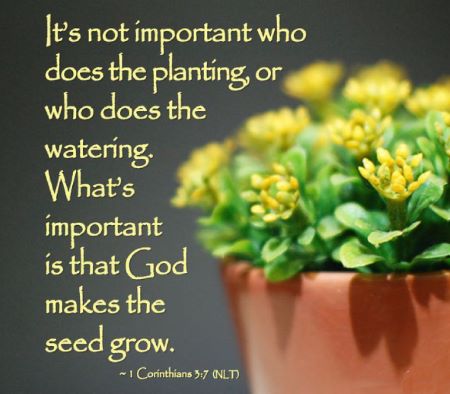
Who Does the Law Exclude?
Something that many people experience when dealing with “the law,” is that it’s not always applied with fairness and it’s not always applied with justice. Sometimes, it’s who you are that determines just how it’s applied. And sometimes it’s less about what’s “fair or just,” and more about who “wins.” I experienced this myself during and after my divorce.
I never felt confident that it would be in my daughter’s best interest to be shuttled back and forth each week between two homes (like so much luggage); but because my former wife’s father literally abandoned his children when she was eleven years old, and because of the deep bond I had (and still have) with my daughter, I knew it was critical that I be involved in bringing her up; and so I sought “joint parenting” from the court. This would mean that important decisions which affected her would have to be made jointly between her mother and me. For example, if my daughter became seriously ill, her mother could not make unilateral medical decisions on her behalf –– they’d need to be made in concert with my input. But the court awarded my former wife sole custody.
That effectively made me a persona non grata. An unacceptable or unwelcome person in my former wife’s life. And it was my experience, that with the legal power of that divorce decree in her hand –– and for seven years –– she did nothing to support my relationship with my child and at times impinged on it –– with impunity. But the law was on her side. She had won.
It may have been that the judge realized that my former wife was emotionally incapable of working with me. It may have been what that particular legal system believed was most “just.” And while I can’t know for certain whether there was a homophobic tinge to his decision since his was, after all, a court in a small county in rural Ohio; I believe my sexual orientation was used to discriminate against what would have been in the best interests of my daughter.
Now as a white, gay man, I can often pass for a white, straight man. I do not wear my sexual orientation on my skin. But sometimes the targets of discrimination are targeted specifically because of what is on their skin: black or brown pigment. And many state and federal legal systems systematically discriminate against them. For example, people with black and brown skin suffer harsher penalties more frequently than do whites. They are significantly overrepresented in the U.S. prison population, making up more than 60 percent of the people behind bars. People of color –– particularly black males –– face longer sentences than their white non-Hispanic counterparts for similar crimes. During traffic stops, people of color are more likely to be searched than their white counterparts. And voting restrictions on the formerly incarcerated have disenfranchised millions of voters, particularly African Americans. And one of the more compelling issues which motivates this discrepancy continues to be the evil of white supremacy and white nationalism –– which was on flagrant display at the January 6 insurrection at the U.S. Capitol.
White supremacy is the belief that white people constitute a superior race and should therefore dominate society, typically to the exclusion or detriment of other racial and ethnic groups, in particular black or Jewish people; while white nationalism advocates for the perceived political interests of the white population within a particular country, especially to the exclusion or detriment of other racial and ethnic groups. But both of these ideologies are wholly antithetical to the Gospel!

There are, tragically, some who simply can’t accept that the demographics of this country are changing. That their neighbors are changing. That their electorate is changing. But this is the misguided and myopic motivation which continues to resist the Reconstruction Act of 1867, which in 2013 failed to support the spirit of the Voting Rights Act, and which prompted the January 6th insurrection. This is the misguided and myopic motivation which favors an immature reading of scripture to resist passing the Equality Act. This is the misguided and myopic motivation which justified separating breast-feeding infants and children from their parents and put them in some form of detention center. And because of these ideologies, they’re digging their claws in, trying to hold on to their power, and are using the power they currently have to make it more difficult for their new constituents to vote; almost solely –– or solely –– because they know or fear they’ll be voted out.
“Just then a lawyer stood up to test Jesus. “Teacher,” he said, “what must I do to inherit eternal life?” He said to him, “What is written in the law? What do you read there?” He answered, “You shall love the Lord your God with all your heart, and with all your soul, and with all your strength, and with all your mind; and your neighbor as yourself.” And he said to him, “You have given the right answer; do this, and you will live.” But wanting to justify himself, he asked Jesus, “And who is my neighbor?” (Luke 10:25-29)
Indeed. Who are our neighbors? Or to put it another way, “Is there anyone who is not our neighbor?” And the answer for all time and in all circumstances is, “No there is not.” Yet there are those who manufacture irrational rationalizations to exclude and ostracize those who are not like themselves. Like the caste system in India, where those at the bottom are Untouchables. Personae non gratae.
Galatians 3:23-26 and Matthew 22:37-39 tell us that before faith came, we were under the law. That the law was our guardian until Christ came. But now that Christ has come, the thousands of laws written in thousands of books, have been distilled into two Great Commandments: Love God with all your heart, soul, and mind; and love your neighbor as yourself. This makes everyone personae gratae: acceptable and welcomed by God. Holy God, help us to welcome each other, and respect their innate dignity, as you do!








